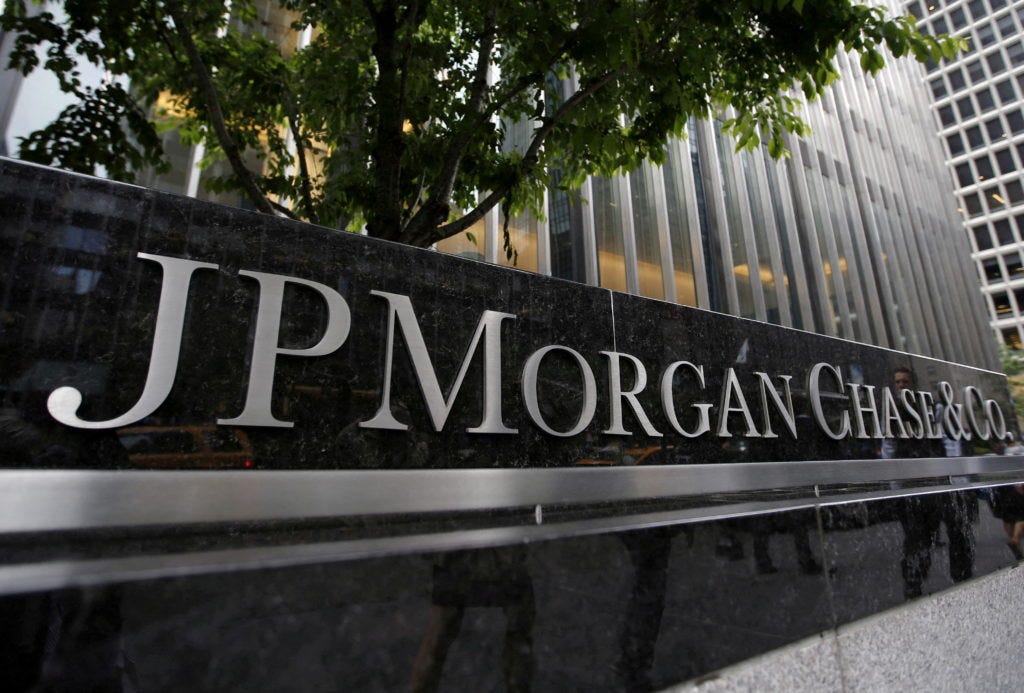 |
| Source: PBS |
The U.S. banking industry is showcasing the strength of the economy as the biggest banks report impressive second-quarter profits, despite the rapid increase in interest rates. JPMorgan Chase, Wells Fargo, and Citigroup all surpassed analysts’ expectations for profit and revenue, painting a positive picture of ongoing consumer spending and borrowing.
In the second quarter, JPMorgan Chase saw a staggering 67% surge in profits compared to the same period last year, while Wells Fargo experienced a 57% jump. These substantial gains were largely attributed to higher interest rates, as both banks capitalized on lending money at more favorable rates. Although Citigroup’s net interest income remained strong, the bank experienced a 36% decline in profits.
The collective loan books of the three banks expanded from the previous year, with an increase in credit card balances contributing to the overall growth. Buoyed by these positive results, the banks raised their lending profit forecasts for 2023, indicating their confidence in the continued stability of borrowing and deposits.
While economists and investors acknowledge a slowdown in the economy since the Federal Reserve began raising interest rates, the recent earnings reports from the major banks suggest a different narrative. The impact of higher interest rates that led to the failures of Silicon Valley Bank, Signature Bank, and First Republic Bank has actually benefited the larger banks, as customers sought the safety they offered. JPMorgan’s acquisition of First Republic, supported by government aid, bolstered its consumer and commercial businesses, resulting in an immediate gain of $2.7 billion.
However, the outlook may not be as favorable for smaller and midsize lenders, who are set to report their results in the coming week. While banks of all sizes face increased interest expenses to retain depositors seeking higher yields, smaller banks may bear the brunt of this additional cost.
The divergence in bank stocks throughout the year further underscores the challenges faced by smaller institutions. JPMorgan, Wells Fargo, and Citigroup have all seen positive growth in 2023, with JPMorgan and Wells Fargo experiencing further gains following their recent earnings reports. In contrast, the KBW Nasdaq Bank Index, representing a broader range of banks, has dropped 18% this year and continued to decline on Friday, reflecting investor concerns over deposit costs for smaller banks.
Regional banks have already begun adjusting their second-quarter earnings forecasts, admitting underestimations in the expenses associated with deposits. The discrepancy in deposit costs has raised difficulties for smaller banks, exacerbating the challenges they face in an increasingly competitive landscape.
While the executives of the major banks maintain a belief in the strength of the economy, particularly when considering U.S. consumers, they caution that uncertainty still looms large. Jamie Dimon, CEO of JPMorgan, expressed his uncertainty about the future, stating, “I don’t know whether it’s going to be a soft landing, a mild recession, or a hard recession.”
Despite these uncertainties, loan defaults remain relatively low, although they have seen a slight increase. The major banks have set aside funds to cover potential future defaults, particularly in the commercial real estate sector, albeit not to the extent seen during significant economic declines.
The banking sector’s cautious optimism is mirrored in the financial markets, as investors embrace riskier trades they had previously avoided. Megacap tech stocks have seen significant growth, with the Nasdaq Composite recording its best first half since the 1980s. Even Bitcoin experienced an 80% surge in the first half of the year, despite regulatory challenges faced by major crypto exchanges.
Looking ahead, while the major banks maintain robust performance, they face growing challenges. The need to offer higher interest rates to depositors, preventing a shift to higher-yielding money-market funds, has impacted their financials. JPMorgan and Wells Fargo experienced a decline of 3% and 6% respectively in deposits compared to the previous year, while Citigroup’s deposits remained relatively stable.
These results have caused concern among investors across the banking sector, particularly as smaller banks struggle to offset the increasing costs. Regional banks experienced a decline in stock prices on Friday, with custody banks such as State Street and Bank of New York Mellon also witnessing significant drops.
As interest rates continue to rise, there is a potential for loans to sour, affecting both consumers and businesses. The banks have begun to tighten their lending standards, with Charlie Scharf, CEO of Wells Fargo, stating, “The economy has slowed, and we’ve taken some credit tightening actions.”
Furthermore, the Wall Street businesses, including investment banking and trading, have faced challenges. JPMorgan reported a 6% decline in investment banking fees, while Citi experienced a 24% decrease. Trading revenues also saw a decline for both banks.
In summary, while the major U.S. banks showcase resilience with strong Q2 profits amid rising interest rates, smaller lenders face mounting challenges. The banking sector remains cautiously optimistic about the future, as uncertainty continues to permeate the economic landscape. As the cycle unfolds, the effects of rising rates and shifting market dynamics will become more apparent, shaping the future of the financial industry.





















